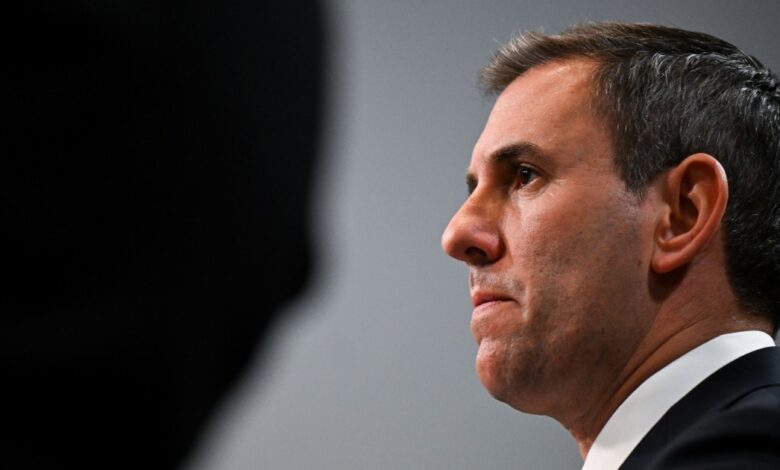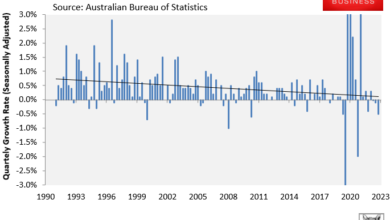Australian economy continues to slow in latest OECD figures

It could be good news for the economy, but it’s terrible for households.
Disposable income and savings rates have plummeted, according to the OECD’s latest household economics report.
The drop in disposable income suggests inflation continues to grow faster than wages in Australia, adding weight to Allan Fels’ claims that profiteering, not wage growth, was driving inflation.
The fact that household spending hasn’t declined over the same period might give some economists pause for thought. Australians appear to be putting discretionary purchases on their credit cards, instead.
While there was a 0.2% decrease in wages across the OECD, collective GPD increased by 0.3%. In Australia, GDP was flat.
The report said 11 countries saw real wages increase in quarter 3 of 2023.
“Of the 21 OECD countries for which data was available, the other 10 saw decreases. Spain experienced the largest contraction (-2.1%), driven by an increase in taxes on income and wealth,” it said.
“Hungary saw the greatest increase (5.5%), due to strong growth in remuneration of employees, income from self-employment and property income.
“In the United States, despite a 1% increase in real GDP per capita and increases in remuneration of employees and income from self-employment, real household income per capita fell slightly in Q3 (-0.3%). This was mainly due to decreases in government social benefit payments, including Medicaid, and increases in payments of taxes and social insurance contributions.”
Increasing GDP and declining incomes point to a shrinking labour share of national income, suggesting higher profits on the back of lower wages across the OECD, including Australia.
In their latest economic survey of Australia, the OECD said Australia’s economic growth is likely to be sluggish into the future, as government and reserve bank policy continue to battle inflation.
The solutions to this are not intuitive. A spokesperson for the OECD wrote that addressing gender equality and climate change was key to increasing productivity, leading to more jobs and economic growth.
“Gender inequalities in the labour market have been steadily reduced but remain visible. Reforms to tax, childcare, education, social benefits and parental leave would improve labour market opportunities for women, promote more equal sharing of unpaid work between genders and help more vulnerable women, notably single mothers,” they said.
“As the economy decarbonises, workers will need to reallocate from high carbon to low carbon industries. Many occupations integral to the renewable energy transition face national shortages, requiring training programmes focused on reallocating displaced workers and developing the skills for renewable energy jobs.
“Revenue should be raised by reducing exemptions in the goods and services tax and consideration should be given to raising the rate. In addition, further reducing tax concessions on private pensions would more closely align their tax treatment with that of other forms of saving and raise revenues.”
READ MORE:
One-third of Australians feel like they need to find a second job





